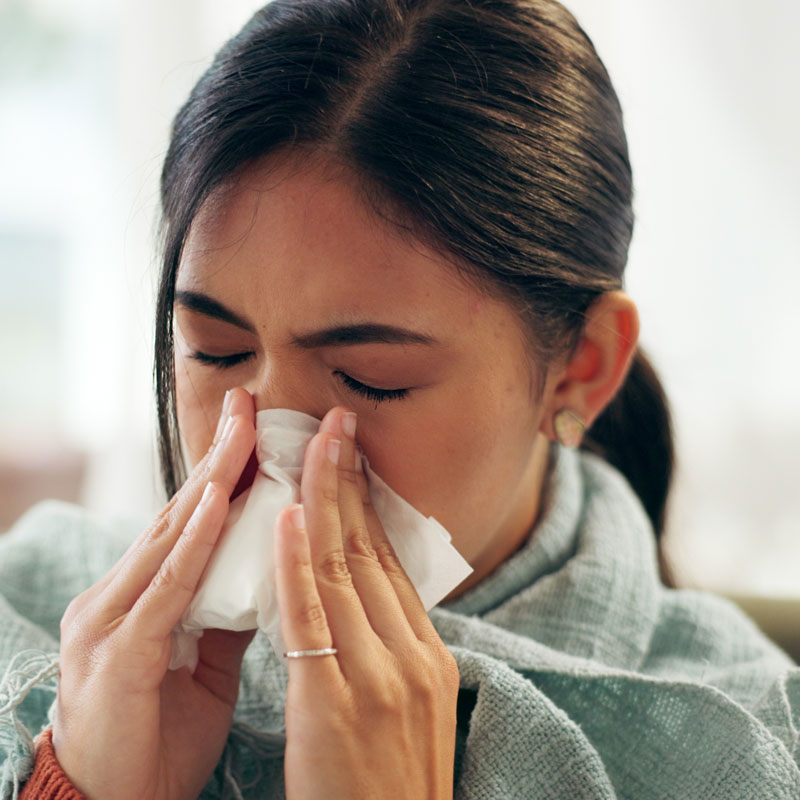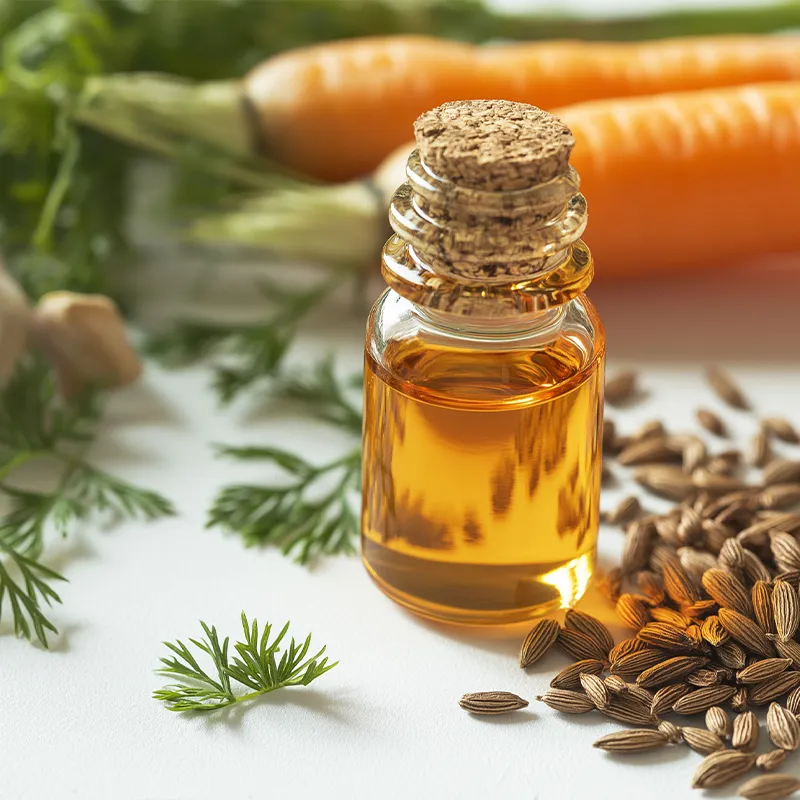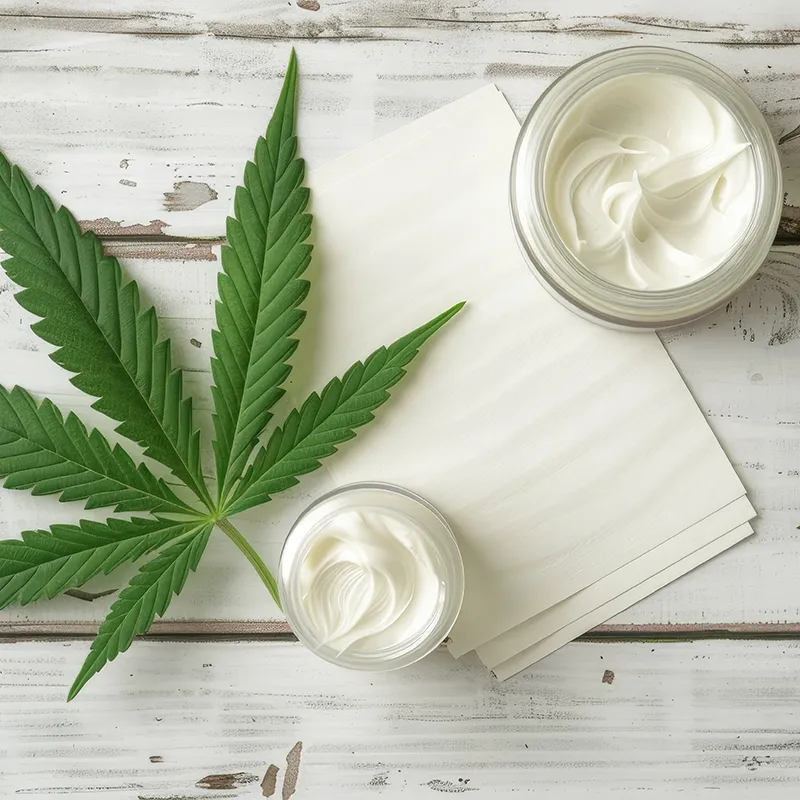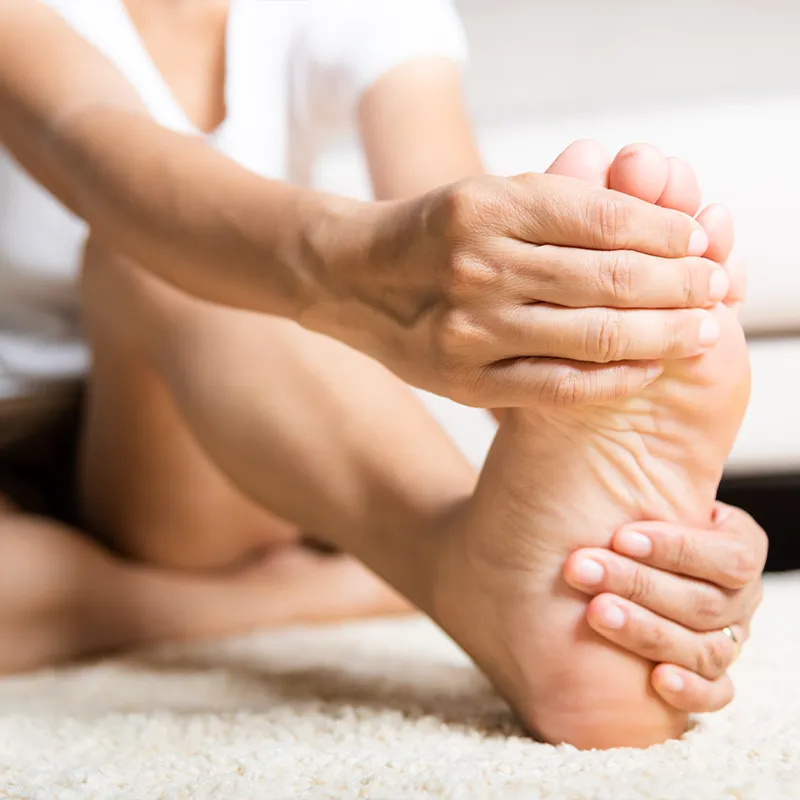12 ways to naturally reduce your cortisol levels and stress
And live a healthier life
And live a healthier life
What is Cortisol?
Stress is something we all deal with. Cortisol, a glucocorticoid (steroid hormone), is typically released in the morning when we awaken, during exercise and of course, when we are put in a stressful situation. This hormone is directly associated with our ‘fight or flight’ response and when built up for too long, can have dramatic consequences for a bodies and daily life, from internal issues like indigestion and weight gain, all the way to affecting our sleep. Learning how to control your cortisol levels can help improve your daily routine by reducing the amount of built of stress contributing to a better daily life.
Cortisol is known as the stress hormone because of its role in the body’s stress response, but cortisol is about more than just stress. Cortisol is a steroid hormone made in the adrenal glands and is present in most of the cells in our bodies. Each cell has cortisol receptors that use cortisol for a variety of functions, including blood sugar regulation, inflammation reduction, metabolism regulation and memory formulation. While cortisol is extremely important for your health, too much can have undesired effects on your body and cause a number of unwanted symptoms. Over time, high levels of cortisol may cause weight gain, high blood pressure, disruptive sleep, negatively impacted moods, reduced energy levels and even contribute to diabetes.
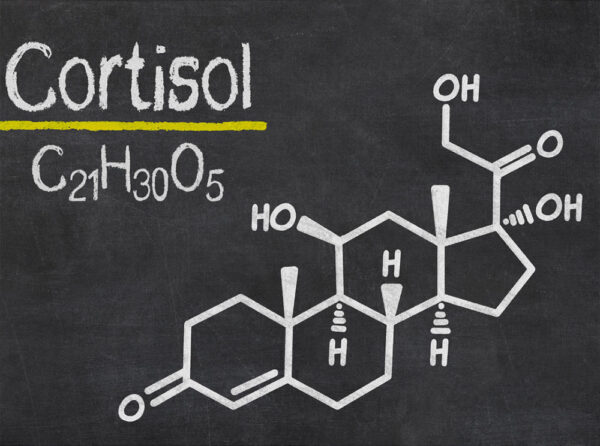
What happens when cortisol is too high for too long?
Over the last 2 decades, studies have increasingly shown that moderately high cortisol levels can cause problems (1). These high cortisol levels symptoms can include
- Chronic complications: Including high blood pressure, type 2 diabetes and osteoporosis (2).
- Weight gain: Cortisol increases appetite and signals the body to shift metabolism to store fat (3, 4).
- Tiredness: It interferes with daily cycles of other hormones, disrupting sleep patterns and causing fatigue (5, 6).
- Impaired brain function: Cortisol interferes with memory, contributing to mental cloudiness or “brain fog” (7).
- Infections: It hampers the immune system, making you more prone to infections (8).
Very high cortisol levels have even been shown to lead to Cushing’s syndrome, a rare but serious disease (1, 9). Fortunately for those with elevated levels, there are many things that be done to reduce your levels naturally.
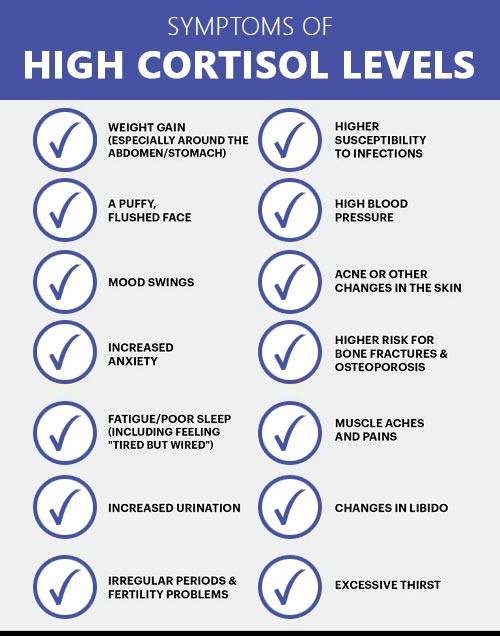
How to reduce cortisol levels and stress on your body
Most of the time, when we think of managing our bodies, we tend to lean on prescription and over-the-counter medication. Over the past decade, more and more people are looking for more natural ways to manage their bodies. This can be from something as simple as exercise or finding time to relax your body and mind. A healthy daily routine can drastically improve many functions within the body and have profound effects on daily tasks. Some of the ways to reduce the levels outlined below are dependent on other parts of your routine that can be positively impacted such as getting better sleep. Improving your sleep patterns can be more difficult when stress levels are high and much more difficult to actually alter, so finding a way to balance your life overall is important and can lead to better overall health.
12 Natural Treatments For High Cortisol Levels
Of these 12 ways, some can be dependent on others or influence the desire and ability to engage. Balance is key and sleeping, eating and exercise can require motivation, energy and the right frame of mind to find and maintain a healthy routine. If one sounds out of reach, engaging in other therapies can lend help and spark motivation to find your balanced routine. Repetition is also necessary and any therapies you decide to try should be conducted for at least a week or two before deciding if it is having a positive effect. Our bodies require time to adjust and have a positive impact. Don’t give up too early or you may miss the essential ingredients to a better and happier life.
12. Cortisol and Exercise
Many of are not fans of hearing we need to get more exercise, but the reality is, is it very important to our bodies and lifestyle. Getting regular exercise has a positive impact on stress (STUDY), reduces built up energy, increases blood flow and can help moderate weight gain or loss. Finding the right amount of exercise is also important in controlling cortisol levels. Too much or too intense exercise routines can increase the hormone while not enough can lead to increased stress and affect our moods. Finding the right level can make us feel better about ourselves and our bodies, internally and externally. Over time, our bodies adapt to the level of exercise and cortisol production is reduced. For those jumping into exercise after long periods of no exercise, mild or moderate exercise is best to keep the hormone from building up in response to a new routine. For those who regularly exercise, the amount of cortisol produced should already be leveled off. Maximum effort is not needed to help control cortisol levels throughout the day and night and only tends to increase stresses on the body with sore muscles and fatigue that can lead to increased stress throughout the day as well. That is not to say intense exercise is bad as it will only tend to increase your levels short term and will decrease through the following night.
Key Points:
- Don’t over-exercise
- Start low and increase exercises weekly
- Keep a steady routine
- Initial body soreness will level off within a week or so
- Find exercises you can enjoy
11. Recognize Stressful Thoughts
Many people tend to worry… a lot. While you may think that staying on top of certain issues will help you deal with a problem, or discover a solution, it may the exact opposite that helps you through stressful thoughts. Dwelling on negative thoughts builds up stress levels within our bodies. This has an impact on other areas, reducing restful sleep, indigestion, irritability, increased heart rates, tension and much more. A study of 122 adults found that simply writing about negative experiences, such as in a journal, led to increased cortisol levels when compared to those who wrote about positive experiences (STUDY). Being mindful of how your body is reacting to your thoughts can help you determine when this happens. Of course, simply trying to wipe negative thoughts from your mind can seem hard and impossible, so rather than try to forget, try to embrace some positive aspects and focus on them instead. Write or even talk about the good rather than the bad and when stressful thoughts overwhelm, incorporate other natural therapies such as essentials oils, supplements, exercise or even spirituality, all discussed below.
Key Points:
- Learn to identify the stressful thoughts
- Write them down or talk about them
- Create a comforting atmosphere
10. Relax or Have Fun
Finding time to relax can be difficult when times are tough. Using techniques such as deep breathing, listening to some calming or enjoyable music, or even getting a relaxing massage can have major positive impacts. Some have found comfort turning to yoga or ta chi. Even reading a good book, enjoying your favorite show or taking time to yourself to enjoy your favorite hobby can help you escape the stress in your mind. The value of ‘me-time’ cannot be overstated and is crucial for all of us. If relaxing isn’t your thing, try having fun instead!
How can you have fun and tend to your own happiness if you are overly stressed?
Have you ever heard laughter is the best medicine? Well, that is actually true in many cases. Simply finding time to have fun and be happy can create a positive disposition and lead to reduced stress and cortisol levels. Many have found hobbies helpful or even gardening. Nature does provide and for those who like to garden, it can be a very calming and rewarding experience. If you are spending too much time cooped up, spending time outdoors can help get your thoughts centered on other things such as the beauty of nature. Even getting out to do a little shopping can help. Whatever it is that makes you happy, you should try to embrace.
Key Points:
- Find your way to relax and unwind
- Make time routinely every week (Every day if possible)
- If you don’t already have set ways, try new ones until you find one that makes you happy and comfortable
9. Relationships
Most of us prefer to be in positive relationships. We inherently don’t prefer bad relationships but can get stuck in them. Family and friends are a great source of happiness for most. Within couples, conflicts can lead to a short-term increase in cortisol levels. Most often this stems from being in the wrong relationship or external issues such as financial issues. There is no easy answer to arguments stemming from external issues, but the reality is both parties would be happier if the focus was not on negative issues. Finding something both enjoy can help bring a couple closer even in hard times and amazingly, sometimes, can help lead to solutions that both can accept.
Key Points:
- Encourage positive relationships
- Find things you both enjoy doing together
- Re-evaluate relationships that promote negative stress on you
8. Pets
Caring for a pet can be calming and rewarding. The love from a furry friend or feathered friend can bring a joy and love that only pet owners can explain. They can be excellent companions and most owners will tell you that they tend to know when you need them the most. They typically have an unconditional love for you and one that you hopefully feel for them as well. Treat them well, and they will be there for you when you need them most.
Key Points:
- If you like pets, owning a pet or pets can help reduce stress
- Pets can be a great source of solace
- Your love for a little friend can greatly impact your well-being
7. Be Your Best
Feeling proud is a feeling not everyone can always say they feel. In tougher times, you can feel like overwhelmed, guilty or even ashamed. In some cases, learning to forgive yourself for mistakes is helpful and may require making changes in your life that create these feelings. It’s okay to make mistakes, but you must learn from them and avoid repetitive incidents. If all else fails, helping others can lead to feeling better inside and can easily be incorporated into your life by volunteering to help the less fortunate. It can be one of the most rewarding experiences and helps others in the process of your own growth.
Key Points:
- Own your mistakes and learn from them
- Do things that make you proud
- Avoid things that you may be ashamed of
- Helping others can be a great source of pride and happiness
6. Spirituality
Spirituality is a form of calming of your inner spirit. It can come from religion or a path of spiritual development such as Buddhism which promotes meditation and other spiritual practices. Embracing your inner spirit may sound goofy to some but can actually have positive impacts on your life and way of thinking. When times are stressful, seeking advice or council from a preacher, minister or pastor can help calm your mind. For others, learning how to mediate can you learn to clear your mind and overcome stressful thoughts.
Key Points:
- Embrace your current spirituality or seek out new sources
- Spirituality does not have to be based on God to be helpful
- Discover your own spirituality with meditation and other spiritual practices
- Reach out to your spiritual advisors for help
- Get more involved with your spiritual community by volunteering
5. Eat Healthy
Eating healthy is not as easy as it sounds. It can be more expensive and is definitely harder to find unprocessed foods. On top of that, when you first start eating healthier, your body may react as good elements begin to replace the bad. This can come in the form of bowel movements, increased oily skin and blemishes and even irritability which can sound counterproductive. As we’ve said before, your body does not change overnight and may require several days or even weeks to see the positive impacts but rest assured, it will come. With any diet changes, be sure you are incorporating all essential aspects such as proteins, nutrients and minerals. Supplements may be required for dramatic eating habit changes. It is a good idea to consult a professional or physician before deciding on drastic changes to your diet.
Key Points:
- Don’t quit your old eating habits cold turkey, rather incorporate the new habits as the old ones fade away
- Understand your body will need to adapt to the changes
- Ensure you are getting all the vitamins and nutrients your body needs
4. Supplements
Adding supplements to your daily routine can be necessary, especially when changing eating habits. Moving to a largely or completely plant-based diet may reduce the amounts of vitamins and minerals your body needs. When changing diets, as discussed above, consulting a professional or physician who can recommend any necessary supplements you may need to add is a good idea. With that said, even if you don’t change your eating habits, looking closely at your diet may help you discover areas where you may be deficient. Don’t just add supplements if you don’t know you need them as that can have unintended consequences as well. Too much of anything IS a bad thing.
Key Points:
- Don’t just buy any old dietary supplement
- Make sure what you buy is what your body needs
- Don’t overuse supplements
3. Essential Oils
Some of the above suggestions can seem out of reach such as reducing stressful thoughts or finding motivation for exercise. Essential oils are a great way to naturally help your body. Essential oils like Lavender, Rosemary, Frankincense and Bergamot have been shown to help reduce stress and negative thoughts (STUDY). Essential oils contain the essence of a plant and are typically steamed distilled or cold pressed. They contain hundreds of compounds such as terpenes which have been shown to help reduce stress, boost moods, increase energy, increase blood flow and much more. There are too many oils to discuss here and their benefits, but they are plentiful and have been used for 1000’s of years.
Key Points:
- Incorporate essential oils into your normal daily routine or newly found routines from above
- Using essential oils has been shown to reduce cortisol and stress
- Essential oils are beneficial in a variety of mediums: diffusers, candles, rollers…
2. CBD and Cortisol Levels
Botanical extracts can be extremely beneficial in reducing and balancing cortisol levels and 100% natural. Incorporating a daily supplement of CBD for your body has been shown to have a positive impact on cortisol levels (STUDY) and stress (STUDY). Our bodies have an Endocannabinoid System that helps to regulate stress, pain, inflammation, sleep, mood and appetite and boosting its ability to naturally deal with its responses to stress is a great foundation to any stress relieving process. In this case, taking low doses during the day and a higher dose at night before bed can help reduce cortisol levels.
Key Points:
- CBD is a natural way to reduce cortisol levels
- Our bodies have 1000s of CBD receptors throughout the body
- CBD interacts with our Endocannabinoid System to boost the body’s natural response to stress
1. Sleep
Getting better sleep is always recommended but for many, can seem unreachable. Stress can keep you up as well as pain or worry-some thoughts. Many of the suggestions on this list can help LEAD to better sleep and in many cases, getting better sleep comes after a few lifestyle changes and the positive impacts that follow. CBD and essential oils are quick ways to bypass some of the others but embracing the others will lead to a more long-term solution in most cases. Sleep can reduce stress, irritability, fatigue, help balance weight loss/gain and even improve the overall health of your body by boosting your immune system, reducing inflammation and much more. Rest and sleep are necessary for a healthy body and that is why it is last on this list. Just saying you should get more sleep is not help. You need to learn how to balance all the activities around sleep so you body and quickly get to sleep and rejuvenate your energy levels.
Key takeaways
All of these ‘exercises’ have been shown to positively impact cortisol levels. As with other aspects of your life, not much changes overnight but through determination, we can achieve our goals and reducing cortisol levels is no different. Always try to implement these suggestions for at least a week or two before you decide it is not for you. Of course, if there are dramatic negative effects such as sever aches from exercise or an allergic reaction to added supplements, essentials oils or even CBD, discontinue use immediately and consult a physician. Also, if you have any conditions that may be negatively impacted by any of these suggestions, consult a physician before beginning.

